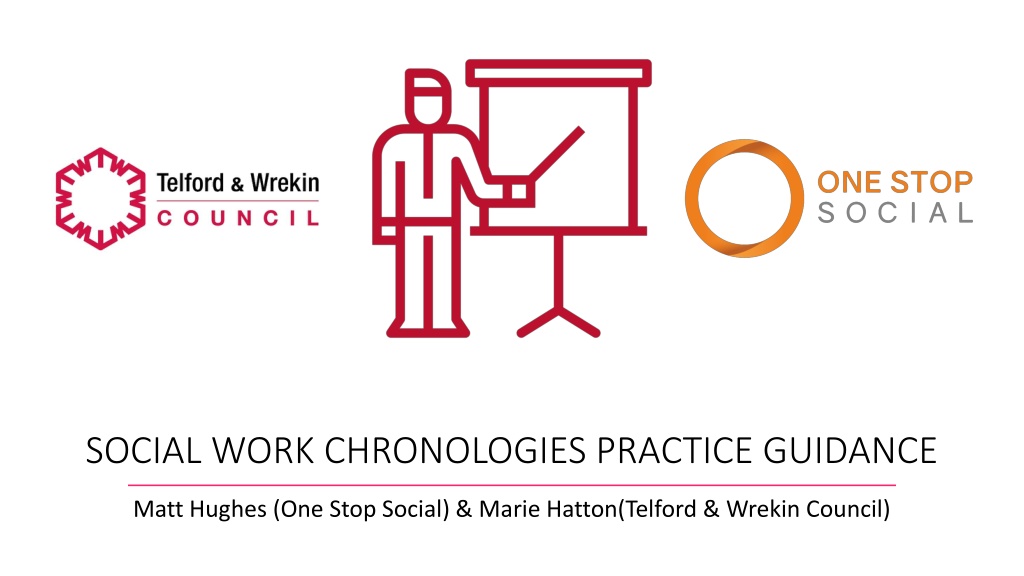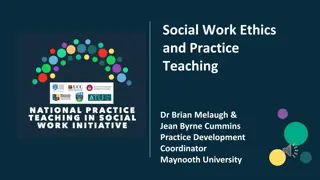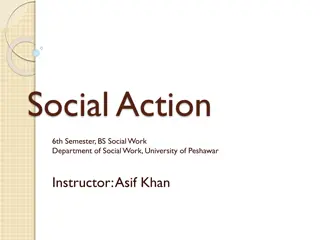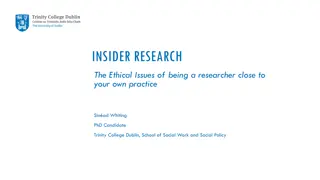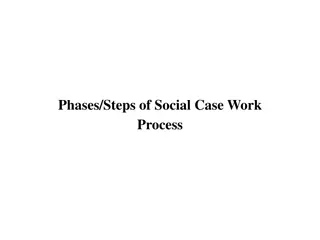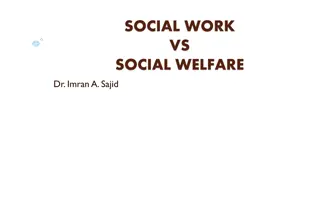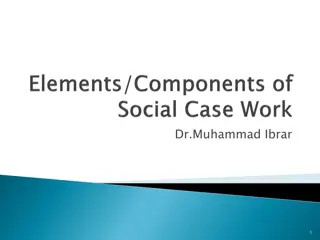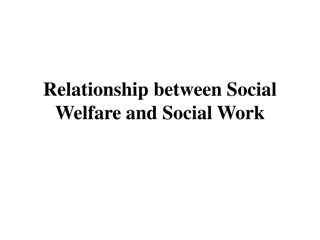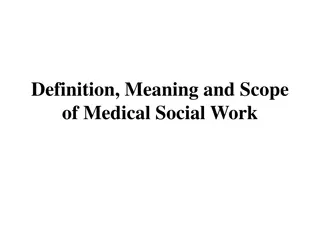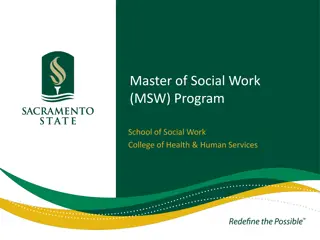Understanding the Importance of Social Work Chronologies in Practice
Social work chronologies play a crucial role in understanding the history and current situation of individuals and families involved in social services. They provide a chronological list of significant events, helping social workers identify patterns, concerns, strengths, and needs. Chronologies help in assessing risks, protection needs, and overall context by creating a sequential story of events. Regularly updating chronologies is essential for accurate assessment and analysis in social work practice.
Download Presentation

Please find below an Image/Link to download the presentation.
The content on the website is provided AS IS for your information and personal use only. It may not be sold, licensed, or shared on other websites without obtaining consent from the author. Download presentation by click this link. If you encounter any issues during the download, it is possible that the publisher has removed the file from their server.
E N D
Presentation Transcript
SOCIAL WORK CHRONOLOGIES PRACTICE GUIDANCE Matt Hughes (One Stop Social) & Marie Hatton(Telford & Wrekin Council)
Developing Social Workers & Supporting Good Practice. Contents: What is a Chronology Why is a Chronology important A Chronology should be A Chronology should include Identify protective factors
Purpose of a Chronology An up to date chronology should be a requirement for every open case. It enables practitioners to gain a more accurate picture of the whole case and is an effective tool for informing the assessment of service users and their families. Social workers should regularly update chronologies so that they reflect the here and now . A chronology is not an assessment in itself but it is an ongoing, analytical tool which social workers can use to help them understand what is happening in the child and/or families life.
What is a Chronology A chronology is a list of significant events recorded in date order that have occurred in a child or young person s life. They provide a concise record of fact. A Chronology: Is an ordered, dated record of significant events in the child's life. It can help identify patterns of events, concerns, positives, strengths and unmet needs; Provides a clear account of all significant events in a child? s life to date, based on knowledge and information held by the agencies involved with the child and family; Reflects the best knowledge a department has about a child? s history at a point in time.
Why is a Chronology important Chronologies provide a key link in the chain of understanding needs/risks, including the need for protection from harm. The chronology provides a skeleton of key incidents and is a 'sequential story' of significant events in a family's history.
Why is a Chronology important It contributes to an emerging picture and allows the practitioner to understand current events in the context of historical information. Setting out key events in sequential date order, they give a summary timeline of circumstances (or those of an individual using adult services), patterns of behaviour and trends in lifestyle that may greatly assist any assessment and analysis.
Chronologies are A logical, methodical and systematic means of organising, merging and helping make sense of information. Help to highlight gaps and omitted details that require further exploration, investigation and assessment, enabling practitioners to gain a more accurate picture of the whole case. Provides a significant contribution to the practitioner's understanding of the immediate and cumulative impact of events and changes upon individuals within a family and therefore informs decision making.
Chronologies are A significant event is an incident that impacts upon a child's safety and welfare, circumstances or home environment. Involve professional judgement based upon the child and family's individual circumstances.
A Chronology should be In date order: So that the case is easy to follow for practitioners and decision makers. Also helps highlight patterns increased or decrease in behaviours.
A Chronology should be Succinct: If every issue/contact is recorded the value of the chronology is diluted. It is important that chronologies do not become repeats of the case notes and so detailed that relevant information is lost.
A Chronology should be Factual: Commentary, assessment or interpretation within the chronology should be avoided. A chronology should stick to the facts in the case.
A Chronology should be Regularly updated: Social workers should ensure that chronologies are regularly updated as the case progresses. Chronologies should be viewed as a working tool, not a final product.
A Chronology should be Informative: assist with the decision-making process.
A Chronology should include Births of significant persons Deaths of significant persons Education, training and employment details Referrals to Children's Services Strategy discussions S47 enquiries Child Protection Conferences Child absconded or missing from home or care of a local authority Admissions to the care of a local authority Discharges from the care of a local authority House moves Persons moving in and out of the household Mental health issues Details of new partners Significant incidences of anti-social behaviour
A Chronology should include Significant assessments by any professional agency (e.g. SEN) Significant referrals to key partner agencies (e.g. youth inclusion services) Criminal proceedings Significant police service logs Incidences of reported domestic abuse Schools attended Changes of school School inclusion issues School attendance issues Changes in significant health professionals Other significant health issues.
Identify protective factors Positive factors should also be recorded in order to provide balance. Examples are: Evidence of the family's engagement with professionals Parent's self-referral for support Child's presentation in school significantly improves.
Finally A chronology must form the basis of any assessment undertaken with respect to any service user and their families. It can also be used with family members to gain an insight into particular family member's perspective regarding key events
